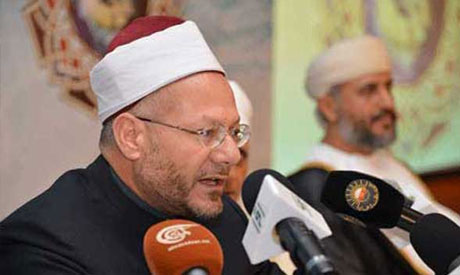
Egypt's Grand Mufti Shawqi Allam (Photo: Ahram)
Egypt's Dar Al-Ifta has clarified its recent edict banning online chats between men and women, arguing that the ruling has been unjustifiably generalised.
On Saturday the authority – the country's highest for issuing religious edicts – said that online chats between men and women who are "foreign to each other" are prohibited except in "cases of necessity".
The edict said that online chats between men and women are "frivolous, evil and open the door for the devil".
On Monday, however, Magdi Ashour – secretary of edicts at Dar Al-Ifta and the academic advisor to the Grand Mufti, Egypt's top Islamic cleric – said in a press statement that edicts from his institution can be issued in response to specific cases.
"It is a great scientific and professional error to take this incident out of its special context and generalise it on matters perceived similar without referring to experts," he said.
Ashour asserted that the religious maxim states that the basic guiding principle is "permissibility".
He explained that conversing between men and women is inherently permissible, like in regular human relationships. Matters can be prohibited, not for their essence, but in cases where other factors distort them.
Ashour added that religion is concerned with the person and not the means when it comes to two-sided matters. He used the example of a knife, which he said can be used in beneficial tasks or adversely such as in murder.
The same applies to online chatting which doesn't harm people or society's customs and propriety, he said. But chatting becomes impermissible when it causes "damage to a person's dignity or honour".
Dar Al-Ifta's edict was met with ridicule from some Egyptians on social media.
However, other groups like the Salafist Call, Egypt's largest Salafist group, welcomed the ruling, saying in a statement to private daily newspaper Al-Sharouk on Sunday that it was long overdue.
The Salafist Call's spokesperson Hatem Ali said that banning online chatting between men and women "stops obscenity".
Egyptian internet users exceed 37 million, according to figures from September 2013.
Short link: